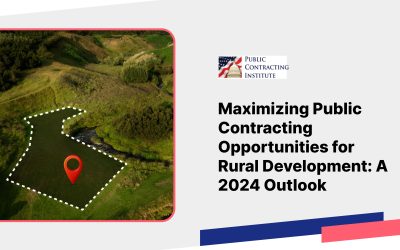Subcontractors bidding US government construction projects often find themselves subject to both mandatory and non-mandatory FAR clauses and provisions flowed-down from the prime contractor’s RFP, as well as the prime’s particular special terms and conditions – and conflicts often exist between the two. Contract payment is one area where discrepancies abound between the FAR clauses and the prime’s own subcontract terms and conditions. It cannot be stressed enough that, prior to bidding work, subcontractors must be able to recognize and understand the various payment provisions contained in subcontract RFPs. Quite simply, for subcontractors, it’s all about the money and how fast they get it. Thus, the type of payment provision is extremely important to subcontractors. To be sure, a subcontract RFP for a government construction contract must include FAR 52.232-27, Prompt Payment for Construction Contracts, since it is a mandatory flow-down clause. This, however, is not normally the problem. Hiccups occur when primes, advertently or inadvertently, also include in the subcontract RFP a totally different payment clause – a “Pay If Paid” clause (PIP). The inclusion of both clauses can cause unnecessary confusion between the parties. Subcontractors must be able to identify and understand the differences between the FAR payment clauses and the PIP and, more often than not, fight to have the PIP clause removed from the subcontract RFP.
In US government construction projects, subcontractors deal with FAR 52.232-5, Payments under Fixed-Price Construction Contracts, and FAR 52.232.27, Prompt payment for construction contracts. FAR 52.232-5 governs the submission of invoices on US government contracts by the prime contractor. The clause, among other things, lists the various items that constitute a proper invoice for payment. For our purposes, the more important of which are the requirements to list the amount of work performed by each subcontractor and the total amount of each subcontract under the contract. The prime then has to certify that the invoice includes only work performed under the contract and that it has not billed amounts it intends to withhold from a subcontractor. Then, the government is required to make progress payments on a monthly basis.
The essential purpose of the Prompt Payment Act, 31 U.S.C. § 3901 et seq. is to prevent slow payments by the government to contractors. This act is implemented by FAR 52.232.27, which is a mandatory flow-down clause requiring the incorporation of certain payment provisions into subcontracts and lower-tier subcontracts. Among other things, the clause addresses payment due dates for the various types of invoice payments. For progress payments, which are the normal payment method for construction contracting, the due date is 14 days after the billing office receives a proper payment request. The Act requires general contractors to then pay subcontractors with seven days after payment by the government.[i] When it all comes together, invoices are submitted and promptly paid. Primes are happy and subs are happy, too.
Obviously, FAR clauses are not applicable in commercial construction contracts. There, the typical payment provisions are PWP or a PIP. Generally, a pay-when-paid clause only requires the prime to pay the subcontractor after the prime has received payment from the owner. One would assume, thusly, that where the owner does not pay the prime (for example, where the owner goes bankrupt before paying the prime), then the prime is not required to pay its subcontractor. However, courts have interpreted PWP clauses as a timing provision; that is the prime is obligated to pay the subcontractor within a reasonable time after the subcontractor bills for the work.[ii] For the most part, subcontractors get paid, even in the event of nonpayment by the owner.
Such is not the case, however, with a PIP clause. PIP clauses, and their interpretation by some courts,[iii] make the owner’s payment to the prime a condition precedent for the prime’s payment to its subs. Thus, in the example above, under a PIP clause, if the owner were to go bankrupt prior to paying a prime for work performed by a sub, the prime would not be obligated to pay the sub, generally speaking.
Obviously, PIP clauses can have devastating consequences to subcontractors. To ameliorate such a Draconian clause, many States, though statues, and many courts, through decisions, have rendered PIP clauses void as against public policy. New York and California are two examples.[iv] However, there are States that enforce these clauses where the clause is clear and ambiguous. Arizona and Arkansas are two such States.[v]
Subcontractors cannot take solace in the fact that their US government subcontracts will only contain FAR payment clauses, and nary a PIP is to be seen. This is because the relationship between the prime and subcontractor is governed by State law and, as a result thereof, commercial terms and conditions will appear in US government subcontract RFPs and contract. Indeed, often subcontract RFPs contain both FAR and PIP clauses. One reason this is the case is that many contractors have only one set of subcontract terms and conditions, and this one set is used for both their government and commercial construction projects. Instead of tailoring a subcontract RFP for a particular project, primes just send the sub the whole kit and caboodle.
In these situations, subcontractors have to realize that these clauses are mutually exclusive – both cannot apply to the subcontract. Instead of accepting the boilerplate PIP, the parties should negotiate it away, thereby leaving only the FAR payment provisions to govern contract payments. These negotiations should not be difficult, especially once primes are informed of the inconsistency between the two and the simple fact that the FAR clauses must be flowed-down to subcontracts at all tiers. After successfully resolving this prickly issue, parties are then set to commence the work, free of contractual ambiguities. Well, as least in respect to payment provisions.
[i] 31U.S.C.A § 3905(a)
[ii] See 50 State Survey Pay-if-Paid/Pay-When-Paid, and No Damage for Delay, Woods & Aitken LLP, www.woodsaitken.com.
[iii] Id.
[iv] N.Y. Lien Law § 34; Cal. Civ. Code § 3262.
[v] See L. Harvey Concrete, Inc., v. Agro Constr. & Supply Co., 939 P.2d 811(Ariz. Ct. App. 1997); Trinity Universal Ins. Co. v. Robinson, 902 S.W. 2d 760 (Ark. 1995).


